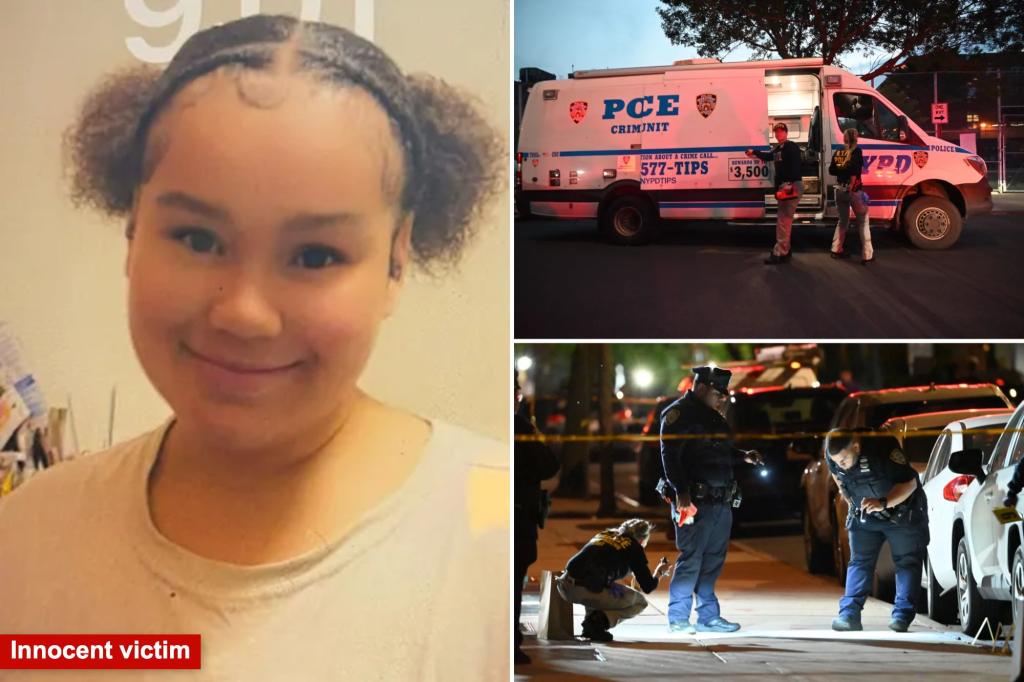The Unfolding Mystery: NYPD Seeks 12-Year-Old Linked to Gang-Related Tragedy
In a chilling development that has rattled New York City, the NYPD is searching for a 12-year-old boy suspected of involvement in a gang-related shooting that killed a 14-year-old girl in the Bronx last week. The incident, which occurred on June 12 near Morris Heights, highlights escalating youth violence and the deepening grip of gangs on vulnerable communities. Authorities describe the suspect as the youngest person of interest in a homicide case this year.
A Community in Mourning: The Human Cost of Gang Violence
The victim, identified as Aaliyah Rodriguez, was walking home from a bodega when caught in crossfire between rival groups. Surveillance footage shows the pre-teen suspect allegedly brandishing a firearm moments before the shooting. NYPD Chief of Detectives Joseph Kenny revealed ballistic evidence links the weapon to multiple unsolved gang incidents.
“This isn’t just another crime statistic—it’s a wake-up call,” said Dr. Elena Martinez, a juvenile justice researcher at Columbia University. “When children younger than middle-schoolers are involved in lethal violence, every system designed to protect them has failed.”
Recent NYPD data paints a troubling picture:
- Juvenile shooting suspects increased 32% since 2020
- 42% of gang members arrested this year are under 18
- Firearm seizures from minors rose to 147 cases in 2023
The Perfect Storm: Factors Driving Youth Into Gangs
Community leaders point to a confluence of pressures pushing children toward criminal networks. The suspect’s middle school reported 38 unexcused absences this year, while child services had an open neglect case on file. Social workers describe recruitment tactics where gangs exploit parental voids—offering money, phones, and false belonging.
“These kids aren’t born violent,” said Reverend Michael Carter of the Bronx Anti-Violence Coalition. “But when your block gives you more protection than your family, and a Glock gets more respect than a diploma, the calculus changes.”
Meanwhile, police face operational dilemmas. NYPD protocol requires juvenile suspects to be processed through family court, where consequences rarely exceed 18-month placements—a reality gangs increasingly weaponize. “They know kids will do the dirt and do the time,” noted Detective Ramon Alvarez.
Prevention vs. Punishment: The Debate Over Solutions
City officials are scrambling to respond. Mayor Adams proposed expanding the controversial gang takedown initiative, while public defenders demand increased after-school funding. Research from John Jay College suggests early intervention could yield better results:
- Mentorship programs reduce recidivism by 44%
- Summer youth employment cuts violent arrests by 35%
- Trauma-informed schools see 27% fewer disciplinary incidents
Community organizer Tanya Wilkins argues for holistic approaches: “We can’t police our way out of this. That boy needed food, therapy, and someone to check his homework—not just another cop at his door.”
What Comes Next: A City at a Crossroads
As the manhunt continues, the case raises profound questions about accountability. Legal experts note New York’s Raise the Age law complicates prosecuting pre-teens, though homicide charges remain possible. The suspect’s grandmother, reached by phone, pleaded for his surrender: “Baby, come home. We’ll get you help.”
For Aaliyah’s family, no resolution will bring back their honor student who dreamed of nursing school. Her funeral drew over 300 mourners last Saturday—a sea of pink balloons symbolizing stolen potential. Meanwhile, precincts citywide are bracing for retaliation violence as summer temperatures rise.
This tragedy underscores an urgent truth: when children become both perpetrators and victims of gun violence, the fault lies not in their choices alone, but in the systems that shape them. The coming weeks will test whether New York can transform outrage into meaningful change—before another young life gets caught in the crossfire.
If you have information about this case or want to support youth violence prevention efforts, contact the Bronx Community Solutions hotline at (718) 555-0192.
See more CNN Headline


